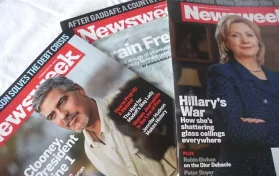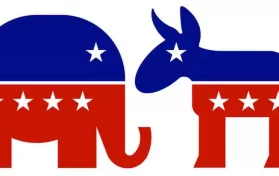
The political objectivity of journalists and media houses has been a controversial topic for discussion for quite some time.
Many media corporations demonstrate bias toward a particular political faction and appeal to their political ideology.
Objectivity is a cornerstone of journalism, and reporting without bias is ethically and professionally prudent.
Ideally, news agencies and media corporations should desist from showing a preference for political ideology.
Objectivity makes the media both reliable and transparent. Unfortunately, many media companies show bias either directly or indirectly.
Undue influence is generally a result of the companies propagating the political ideology of their owners.
Reuters is one of the leading news agencies in the United States. It enjoys a worldwide reach to a global audience.
So, is Reuter’s liberal?
Reuters is a reasonably neutral news agency with relatively decent reporting standards. The agency has a decent score on most bias ratings, making them a relatively reliable news source. The agency demonstrates neutral scores on the bias chart, considering several factors.
The Impact Of Political Bias In Reporting And Journalism
Media houses and news outlets must demonstrate neutrality in conveying information. It is rare to find corporate media bodies that are neutral. Many of them propagate some ideology. It is known as political bias.
Being biased has had implications on how we process reporting. The results of bias in reporting manifest in the following ways:
1. It creates a lot of distrust
Bias political reporting creates distrust. People are less inclined to believe in the media, especially corporations that don’t align with their views. Bias media usually is unreliable and is not typically based on factual reporting.
When a right-leaning and a left-leaning media house cover a story, there are generally glaring differences in the information relayed.
It makes people unsure of who is telling the truth. A lot of facts get lost when appealing to political ideologies.
Coverage must be neutral to create trust from the general public. As a result of distrust in the mainstream media, many folks have resorted to seeking alternative sources. These sources are likely to convey fake news due to an absence of reporting standards.
2. Polarization
Political bias is an instigator for the polarization of the citizens. The media plays a crucial role in influencing our perceptions and opinions.
As a result, you would find great hostility and rivalry between left and right-leaning media consumers.
The media influences our way of thinking. People who exclusively consume media from sources that align with their beliefs develop a myopic way of viewing issues.
It means that people on the opposite end of the political spectrum feel an inexplicable indifference toward each other.
People should try and consume media from different sources to get opinions across the board. Fostering independent thinking is also essential.
3. Degradation in the quality of reporting
It comes as no surprise that bias reporting contributes heavily to poor-quality reporting. Biased news sources tend to purposefully omit specific details or stories to make their views ‘look bad.’ It also leads to misinformation and the spreading of fake news.
Media houses that fail to detach political opinions from news facts are misleading and distrustful. There have to be unified standards that dictate how the media should do reporting.
Bias reporting is evident through propaganda, misinformation, disinformation, and malice. By minimizing political influence in reporting, we increase its overall quality.
4. It impacts the accountability of politicians.
Bias reporting has an impact on the accountability of politicians. It is a direct consequence of depicting specific issues in an overly positive or negative light by failing to inquire on the shortcomings of either right-wing or left-wing ideology.
Politicians know that certain media factions won’t scrutinize their negative actions. It encourages them to do whatever they please. The media has a role in holding politicians accountable for their actions and policies.
Being unfairly critical of specific issues and ideologies also fosters bias. There has to be a neutral approach to examining issues.
5. Democracy
When the media fails to demonstrate neutrality, it impacts democracy. For many people, the media fosters their political ideologies. It means that people who consume a particular media type would exhibit specific voting patterns.
When the media is biased to promote either left-wing or right-wing political ideology, it impacts their political choices. It is the reason that fostering independent thinking is essential to democracy.
Types Of Biases That Exist In Reporting And Journalism
Aside from political bias, other biases exist in journalism and reporting. These biases can manifest openly or subtly in any form of media. They are common, but many of us hardly recognize any of them.
Biases are at times hard to avoid. It is due to our opinionated nature as human beings and our inclination to certain beliefs. They can be detrimental to reporting standards.
Here is are the examples:
1. Ventriloquism
Ventriloquism is common today. It is a form of confirmation bias, where neutral opinions from experts tend to get misconstrued to echo personal opinions. The words of opinions tend to get contextualized to align with personal beliefs.
It can be misleading and dangerous as it manipulates the consumer’s interpretation of specific topics. It also makes it seem like the experts are inclined to have similar opinions to the reporters.
2. Undue weight
Undue weight occurs due to over-emphasis on a particular issue while not shedding enough light on others.
Undue weight is mainly agenda-driven, intended to elicit public reactions to particular issues. The corporate media may also use it maliciously to take the spotlight away from specific issues.
News agencies must balance the weight on issues according to their seriousness.
3. False balances
False balances are the malicious and deceptive reporting used to imply fairness on specific issues.
The use of false balances is intended to mask the underlying issues of injustice while putting forth the rhetoric of fairness.
False balances are used to discredit injustices suffered by suggesting a degree of fairness.
4. Sensationalism
Sensationalism is reporting made to elicit public reaction while not being genuine. It is a “Don’t let the facts get in the way of a good story” approach to journalism.
Sensationalized stories are intended to push clicks and generate traffic for news websites and blogs.
Sensationalism is one of the main ways misinformation is transmitted in the media.
5. Advertising bias
Advertising bias occurs when stories are angled to shed advertisers in a positive light. Advertisers are essential to the revenue generation of media establishments.
It makes them inclined to please advertisers by reporting in such a way that makes them look good in the eyes of the public.
6. Structural bias
Structural bias is intended to omit the coverage of certain events or stories, as they tend not to fit a particular criterion. Events omitted under structural bias fail to meet a subjective standard of newsworthiness.
7. Mainstream bias
Mainstream bias in reporting news is considered prevalent. It ensures that coverage is limited to general topics that are not considered offensive.
How Can Media Bias Be Corrected?
Media bias plagues nearly all media corporations in the United States. It is also a global problem that needs to be resolved. Correcting bias is a way of promoting good journalism.
What Can We Do to Rectify Media Bias?
1. Stricter reporting standards
There should be better reporting standards that govern media corporations. The FCC should apply these standards uniformly for all corporations. It will help address certain biases within the industry and improve reporting standards.
2. Neutral journalism
The personnel employed by media corporations must remain impartial. Today, the media is littered with strong political affiliations to specific factions.
As a result, they cannot remain objective while reporting on social and political issues.
3. Having experts address issues in their fields
Media corporations need to allow experts to address specific issues without weighing political opinions. Separating the political from the professional issues is key to retaining impartiality.
4. Separating ownership from professionalism
Media corporations should be able to operate free from the undue influence of their owners. It will assist them in remaining neutral on specific issues. The most significant cause of bias is news agencies echoing their owners’ opinions.
5. Neutral commentary
Management should balance the contributors of media houses. News agencies should afford equal opportunity to contributors across the political divide.
Conclusion
The issue of biased political reporting in the United States has come to light recently. More people are scrutinizing their news sources and their influence on shaping their political opinions. Objectivity is key in journalism, yet it is not often demonstrated in modern-day reporting.
Reuters is a relatively neutral agency, which scores being reliable. Fact-checkers from multiple independent bodies indicate that the company has little political influence. It indicates that there is a decent reporting standard with Reuters.





